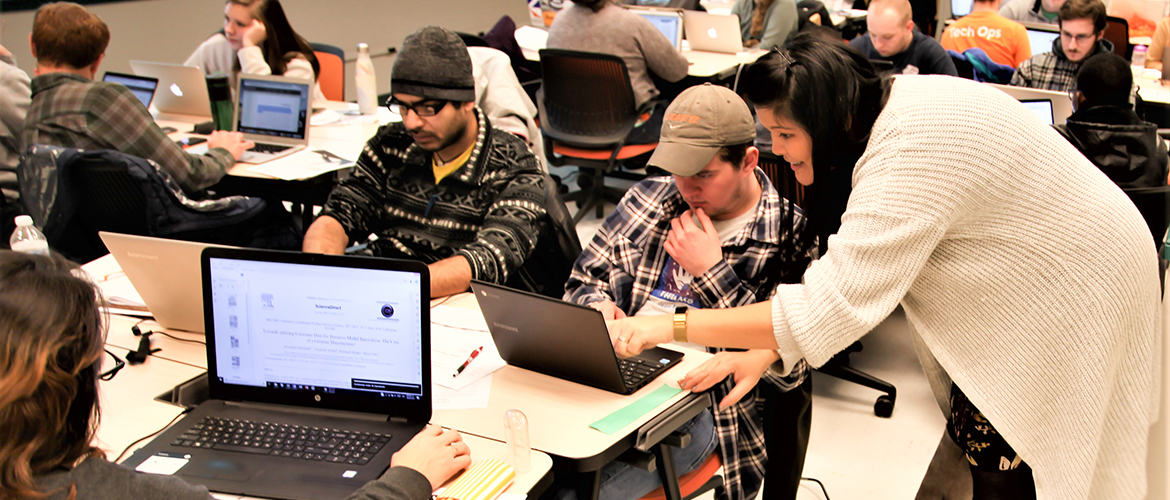
Online applied linguistics program moves closer to launch
Thursday, April 25, 2019
Oklahoma State University assistant professor Dr. Stephanie Link is one step closer to launching her online program Wrangler, which is aimed at making research writing easier.
Her four-member team recently wrapped up the seven-week National Science Foundation
Innovation Corps program where they traveled the country interviewing 100 potential
customers while learning what it would take to turn the Wrangler technology — which
is currently in a research and development phase — into a desired business product.
“The feedback has been positive,” said Link, assistant professor of teaching English
as a second language/applied linguistics in OSU’s English department. “I understand
that academia is a hard market to crack but as an academic myself, I’m really interested
in penetrating this market because I know how big of an issue research writing is.”
A $50,000 NSF I-Corps grant allowed Link and her team to explore whether Wrangler
may serve a viable need beyond the OSU campus.
“We want to know ‘Is Wrangler solving the critical issues that especially students
and faculty are experiencing?’” Link said.
In talking with other graduate college deans and vice presidents of research, Link
learned they crave a stronger writing ability at campuses across the country.
“It takes years and years of practice to become an experienced writer,” Link said.
“Often times we find that a big problem for faculty is they may not have the specific
training on how to transfer their writing experience to students.”
The philosophy behind Wrangler is to complement what already works by providing a
more linguistic language-based approach.
“Wrangler helps get down to the specifics of writing by looking at the language,”
Link said. “As an applied linguist, I’m all about discovering new emerging technologies
or developing technologies for the purpose of enhancing language learning. Specifically,
I look at second-language writing or written science communication. A lot of our science
writers are second-language learners. We are finding the approach that I have is also
applicable to native speakers, especially first-generation college students and STEM
students. We are looking for a more systematic way of approaching the writing process.”
OSU linguistics doctoral student Robert Redmon, co-entrepreneurial lead on the NSF
I-Corps team, said much has been learned about Wrangler and its potential during the
100 face-to-face interviews.
“We’ve learned that there’s a need for writing instruction at the level of abstraction
Wrangler provides, which is to say something more detailed than topical outlining
and bigger-picture than grammar,” Redmon said. “We’ve learned that this is especially
the case in STEM programs, where writing is often institutionally neglected in a way
that seems to generate a lot of work for individual professors.”
Regardless of whether or not Wrangler ends up getting marketed and used at other higher
education institutions, Link would like to see its availability grow on campus.
“We are going to continue development and make sure that OSU can potentially become
a hub for written science communication,” Link said. “We want to get students to a
point where they are discipline-specific experts in writing so they can help their
peers.
MEDIA CONTACT: David Bitton | Brand Management | 405-744-9782 | david.bitton@okstate.edu
